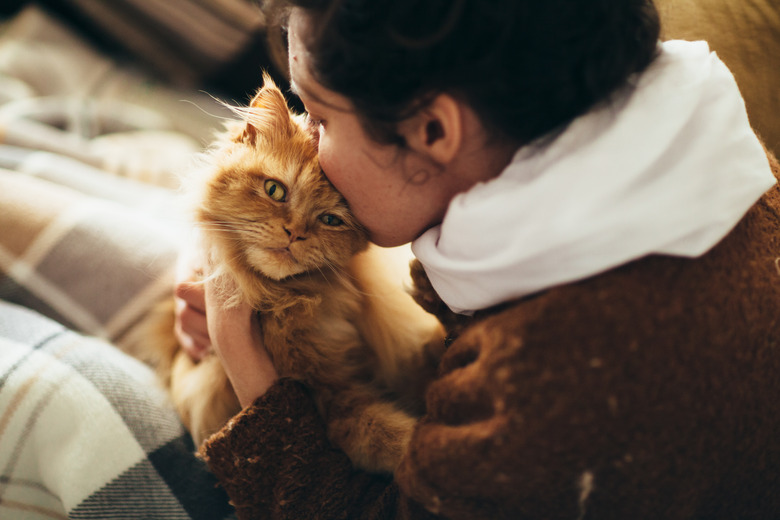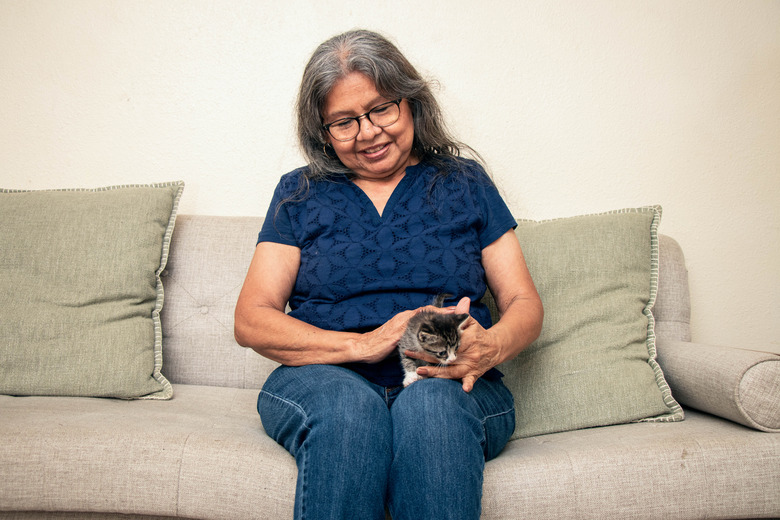Does My Cat Think I'm Its Mother?
If you've lived with a cat, then you know that cats consider your home their home. Cats do what they want as they roam about, and you might wonder why. The answer is actually sweeter than you think.
Our cats treat us as equals as opposed to a totally different species. According to recent studies, dogs behave differently around humans than they do other dogs. This clearly indicates that dogs view humans as different from themselves. However, cats treat humans the same as they treat other cats.
John Bradshaw, author of Cat Sense and a cat-behavior expert at the University of Bristol explained, "They obviously know we're bigger than them, but they don't seem to have adapted their social behavior much. Putting their tails up in the air, rubbing around our legs, and sitting beside us and grooming us are exactly what cats do to each other." In fact, cats treat us as a very specific kind of cat.
Cats behave as if humans are their mothers.
Cats behave as if humans are their mothers.
No, your cat doesn't actually think you're the mama cat that birthed it. But cats show us a level of respect and affection that is very similar to the way they treat their mama cat. And this sweet fact flies in the face of anyone who thinks cats' "aloof" personality means they don't care about us. Because what being doesn't love their mother figure?
In fact, cats are independent because they think humans are cats like them. They think we're just one of their kind. And cats reserve their affectionate behavior usually for the humans in their homes. Researchers found that cats were more relaxed and content around their humans, but more on high alert around strangers.
So how exactly did cats come to see us as mama cats?
So how exactly did cats come to see us as mama cats?
Because cats socialized themselves, it seems like they saw us as potential caregivers from the beginning. Dr. Bradshaw explained, "Almost all domestic cat social behavior must have started out as mother-kitten behavior. Their ancestors were solitary, territorial animals, and the only friendly behavior between two cats would have been between mothers and their kittens."
So if cats learned to recognize their loving mamas as safe creatures that they could exhibit friendly behavior with, then they probably drew a similar conclusion about humans.
But what evidence do we have that proves cats see us as mother figures?
But what evidence do we have that proves cats see us as mother figures?
Cats respond to our loving behavior. When animal behaviorist try to pinpoint how cats choose their "favorite person," one major factor was how the person behaves towards the cat. If a human feeds, plays with, and nurtures the cat, then the kitty is more likely to reciprocate with affection. So clearly, cats recognize our nurturing behavior and give it back to us.
Secondly, cats learned to prey on our emotions like human babies. Cats don't meow with other cats. They developed the "meow" to play to our loving emotions because it sounds like a baby's cry. Because of that, these sounds are particularly effective for getting humans to do what they want. Clearly, cats noticed how to pray on our parental instincts, and it works.
Also, cats knead our bellies with their paws, which they probably learned from their mother. Kittens knead the area around its mother cat's teat to help improve the flow of milk. While they don't need to do that later in life, scientists believe that cats knead because it reminds them of the comforts of a nursing mother. Just another way that our cats treat us like their mothers.
Because our cats sometimes don’t always want to show affection, it’s comforting to know that their affections come from such a strong place.
Because our cats sometimes don't always want to show affection, it's comforting to know that their affections come from such a strong place.
And let's be real, we do fall immediately into our mom voice when we find our cats did something naughty. So, it fits.

